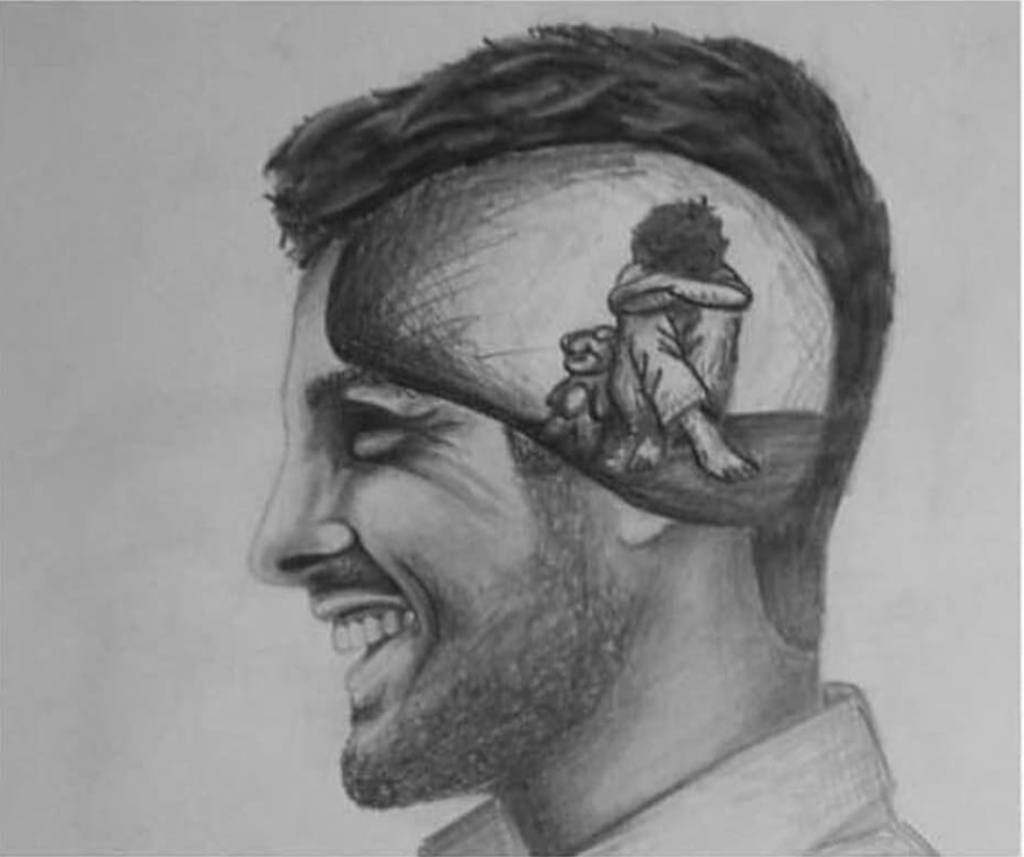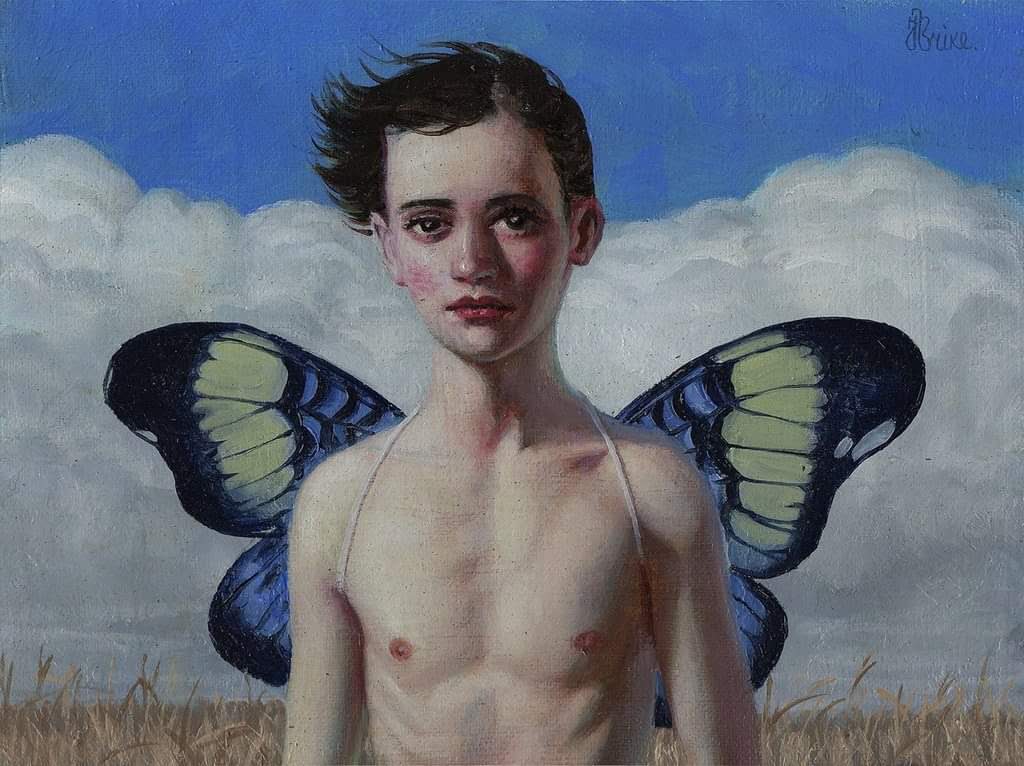“Big Boys Don’t Cry”
This single sentence has caused more mental health problems including depression and suicide for boys and men than any other idea.
The male gender stereotype expecting men to be strong, non emotional and not displaying any sign of vulnerability has been promoted in our culture for generations, and has caused way more harm than good.
But how exactly does this socially constructed trait lead to mental health problems for Men around the world?
And why does such an idea about masculinity and what it means to be a man exists in the first place?
Men Learn To Hide Their Emotions
From an early age, young boys are often told that displaying their emotions is associated with weakness:
- “Stop crying like a baby!”
- “Be A Man!”
- “Pull yourself together!”
They learn from their environment that expressing their sadness or sorrow make them flawed in some way and should be avoided.
Therefore, to be accepted by their peers and others into their community, they come to abide by those social rules and norms related to masculinity and start to stuff up their emotions.
Even if a tragic or sad event happens, they don’t allow themselves to feel or express their sorrow: They don’t cry to release this emotion, they don’t talk about it to their close ones. Men learn to either ignore their sadness altogether, or disguise it as anger and let it all out (since anger is not associated with weakness in the masculinity model they came to incorporate).
On the outside, they appear to be confident, strong men, social and charming, depicting all the characteristics of our culture’s definition of masculinity, having done everything of what the world expected of them, the perfect product of a set of norms and rules.
On the inside, however, they are a messy wreckage of unexpressed emotions, unresolved issues and childhood traumas, carrying a shallow sense of self-esteem based on other people’s approval.

This contradiction between what these men appear to be and what lurks in their subconscious perfectly illustrates what’s wrong with the male gender stereotype: Lying to oneself and pretending that everything is fine becomes more important in our culture than displaying any sign of vulnerability, whereas paradoxically it is acknowledging our vulnerabilities that enables us to heal and address internal problems at the root of our distress.
The Issue With Unexpressed Emotions
“Unexpressed emotions will never die. They are buried alive and will come forth later in uglier ways.”
Sigmund Freud
Having men not expressing their emotions leads to the following negative impact on their mental & physical health:
- Our actions are heavily influenced by our emotions, and if we ignore our feelings, they will not disappear, far from it, they would still exist, and they would still be influencing our actions and decisions, just this time without us being aware of it.
When repressing emotions, they move under the threshold of consciousness, we no longer know we are feeling these emotions, but they are still there, subtlety controlling our lives in some way.
Therefore, giving the fact that emotions impacts our behaviors and lives, bringing these emotions to consciousness and being able to observe how they influence our lives as a 1st step is a way better strategy that being blind folded and having them control our lives from the deep corners of our unconscious.

- Avoiding our emotions leads to compensation strategies through excessive use of drugs, alcohol, sex, binge watching tv, etc.
That’s the price you have to pay for distracting yourself from your feelings: a long list of unhealthy behaviours leading to an unhealthy lifestyle.
Repressing our feelings is the worst way of dealing with them, and a better alternative is to allow ourselves to feel our emotions and express them fully.
However, the definition of masculinity imposed on us gets in our way of dealing with our feelings in a healthy way, so let’s address the fallacy behind this socially constructed definition of what it means to be a man.
Resilience Is The Goal, Not Invulnerability & Denial Of Emotions
There is a flagrant misconception about masculinity: we confuse resilience & strength with hiding our emotions and being stoic. We confuse weakness with displaying vulnerability.
However, we can perfectly feel all of the spectrum of human emotions, let ourselves process our feelings, wear our vulnerabilities and scars in the daylight, and still be resilient & strong in the face of hardships all at the same time.
Here’s an example:
Something unfortunate happens to you: you loose your job, someone dies or leaves you, you have an accident, etc.
The 1st healthy step to deal with such an event is to give yourself the space to fully feel the pain, sorrow, and sadness ignited in you.
Now, here’s when resilience and strength of character comes in: While a resilient person would be able to cope with all these intense feelings and actively choose the best next course of action, a weaker person would be overwhelmed by these feelings, and in an attempt to abide by toxic masculinity norms, would either choose to ignore them all together and hide his feelings from himself and from the world, hence becoming numb and passive in his reactions to events, or give in to depression and let external circumstances completely define his life.
So the real problem men should deal with is not that they have feelings and are vulnerable as any other entity on this planet is.
The real problem they should tackle is their passivity when facing adversity, and the lack of emotional maturity that enables them to process their emotions and cope with any situation they might encounter.
Crying is our body natural response mechanism to an emotional state (pain, joy, etc) and helps flush out stress hormones and release oxytocin.
In other words, crying is how our bodies deal with strong emotions and restore emotional balance: You feel sad, you cry, and then you feel better.
There is nothing wrong with crying per se, but the problem arose when the cultural concept of masculinity associated emotional expression with weakness, leading boys to deny their emotions and ending up with mental & physical health problems when reaching adulthood.
However, crying has nothing to do with weakness, it’s on the contrary, a sign of strength, because it means that we are courageous enough to face our feelings and process them.
It means that we are connected to our emotions and instincts, to our roots and to what makes us human.
It means that we strive for resilience in both coping with our emotions and in facing the world, not to deny our internal experience.
That’s what masculinity and manhood should be about.
So go ahead, shed some tears, cry rivers, open your heart, let the light in, and then, once you are done, get up, and go kick some ass, like a man.

Stay in the loop


